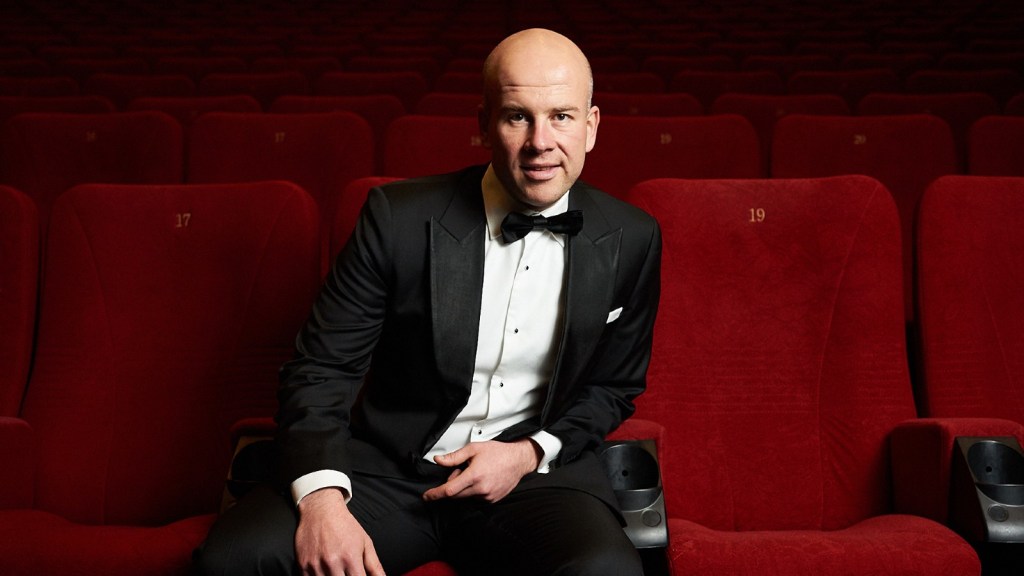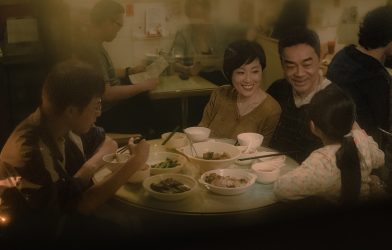
Algirdas Ramaska CEO Vilnius Film Festival
photo-by-Gediminas-Grazys.
Algirdas Ramaska was born into a family that ran Lithuania’s largest cinema, so it’s safe to say there was only really one way his life was going to go.
And a life immersed in film has surely followed for the man who sits as both the CEO of the annual Vilnius International Film Festival (VIFF) and of the Kino Pavasaris Distribution company, which is helping chart the course of cinema across his home country, and across the Baltic States of Estonia and Latvia.
THR caught up with Ramaska in the midst of the 29th edition of VIFF, and he has some remarkable stories to share. First, there’s that childhood at the feet of his mother, who ran the famed Lietuva cinema in central Vilnius. Then there’s been a career helping build and guide the VIFF in the face of potential catastrophes in recent times, what with the onset of the global pandemic and the effects throughout the region being felt following the Russian invasion of Ukraine, a fellow former Soviet state.
“It was a miracle that we survived the pandemic, and also this war,” says Ramaska. “But now, this looks like all the work that we have done in investing in our audience, in investing in the industry and in its growth, it’s all coming back … and it’s coming back really well.”
Ramaska reports that there have been any number of sold-out screenings at this year’s VIFF, and at its pre-pandemic peak was dragging in crowds of more than 100,000 from a nation of around just three million.
Among the hits have been Oscar winners Anatomy of a Fall and Zone of Interest, while two films that tackle the pertinent issues of immigration — Green Border and Me Captain — did what Ramaska hoped they’d do — they got people talking.
Ramaska’s hope is that VIFF’s continued success — and distribution deals with the likes of current global darlings A24 — will boost a domestic industry that is increasingly being used as a film-friendly destination for location shoots (Stranger Things), while producing a new generation of filmmakers, including Venice winner Laurynas Bareiša (Pilgrims), who are making their mark on the world.
Can we start by talking about how you became involved in film?
I was born almost literally in the cinema because my mom used to run the Lietuva. So as I grew up in the cinema, I joined to help her. But I’m not a cinephile. I’m not that crazy about films in general but I’m crazy about the power of the cinema that we show. My obsession is to create experiences for people that they didn’t even know existed.
How is that reflected in the program at VIFF?
People have different tastes, different approaches to life, and that’s why we adore film, and cinema in general, because it can talk about everything in your life, and also help people to learn. So as well as the big films we bring we also try to cover diverse interests, with sections on gastronomic films, sports films, films that people can maybe learn from.
How does the festival’s relationship with Kino Pavasaris Distribution work?
Since we are a small country, we found that it would only be economically better for us to buy the distribution rights of the films and then we can do the strategy for the film and we can have more screenings in the festival, then we can release them after the festival. We can show it on VOD, we can sell it to TV, and use it for our different events in summer.
And increasingly you are tying business sidebars in with the screenings?
The festival is a unique platform because we take over all cinemas in the country for one month, just to play our content. All festivals are started by film lovers but in terms of growing, if you don’t have this business knowledge, business understanding, you cannot grow the organization. So I think more and more we talk about the business side and about the management side — on how to manage it, and how to reflect the audiences’ needs, and to look for a wider perspective. The business part is crucially important to run organizations because otherwise, you will be suffering.
And what about the hook-up with A24 — what can you tell us about that?
It’s a dream come true to work with A24’s titles, with the studio, to represent their films. In the industry outside, A24 is a very well-known brand but in terms of the audience, for example, in the Baltic States, it has only been known by very big cinema-goers. So we’re promoting — we’ve released five films and there is great attention.
How big is the push to use Lithuania as a location?
The people are coming here. They see the location, they see the [low] taxes and incentives, so they see the possibilities. They see some authentic, unique parts [of the country]. Also, they see that we have services and know-how. This is a good environment that helps grow the whole industry and the whole market in general. We’re seeing more productions and people are coming to see the films.
How is the situation in terms of your domestic industry and emerging Lithuanian filmmakers?
It’s an amazing time. We are just a young country. It’s only been a little bit more than 30 years since we got rid of this occupation from Russia and now we have a very, very powerful young generation of filmmakers and the number of productions is skyrocketing. Also, the young filmmakers have their own cinematic voice. They are so powerful not only nationally, but internationally. There was Laurynas at Venice and Marija Kavtaradze won best director at Sundance [for Slow]. We also have a lot of co-productions and filmmakers coming here to shoot so this is a really exciting moment of transformation.
In terms of running the festival, what’s the reward for you?
Full-house screenings. When people are coming in and they’re watching the screen, I love to go with the team to the screening room and we watch the audience. We see their emotions and everything — and that’s just pure joy.









